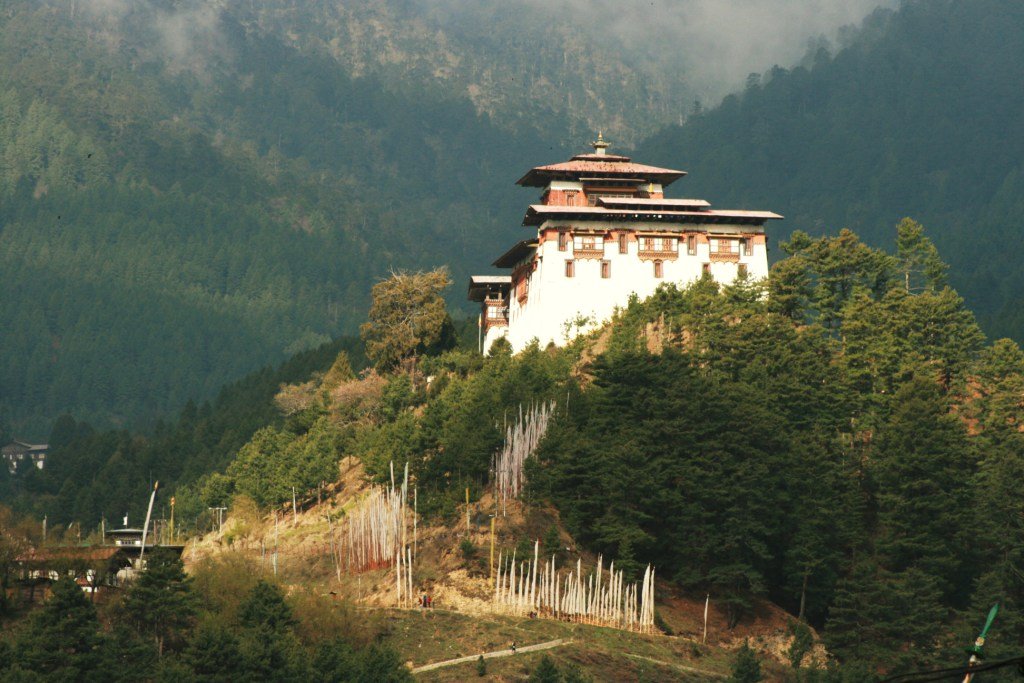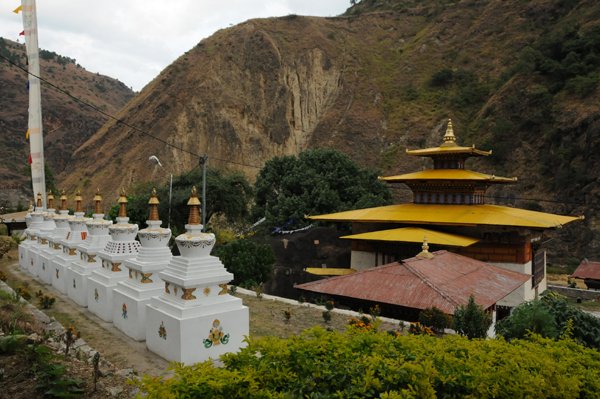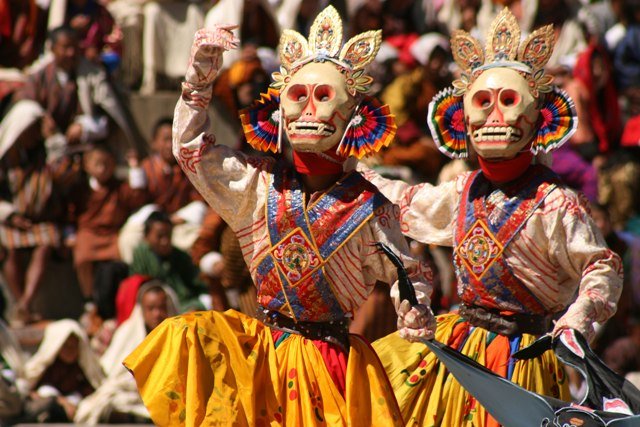Nabji Lhakhang Drup
Nabji Lhakhang, Nabji Trongsa, BhutanThe Nabji Lhakhang Drup, also known as the Nabji Lhakhang Festival, unfolds in the picturesque village of Nabji. Accessible via a brief trek from Reotala, nestled between Trongsa and Zhemgang, Nabji Village welcomes visitors with its serene charm. The festival's highlights include the Tercham, or Dance of the Treasure, and Mewang, the Fire Dance, along with other sacred mask dances honoring Terton Pema Lingpa. The Tercham, a particularly revered ritual, is believed to bestow blessings upon infertile women, and is performed by dancers clad only in facial masks amidst the flickering glow of a bonfire during the nocturnal hours.








